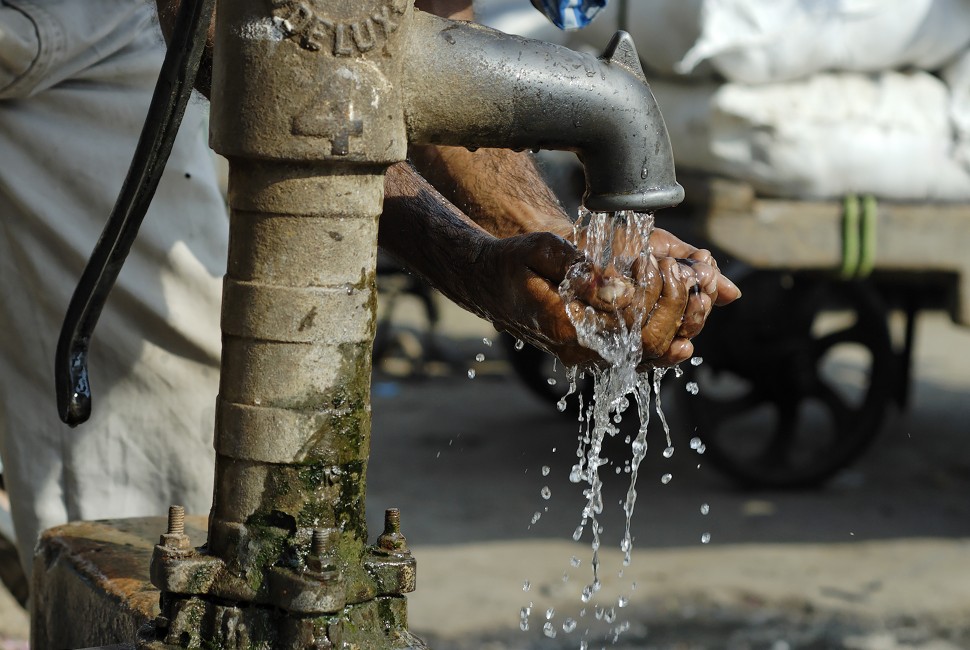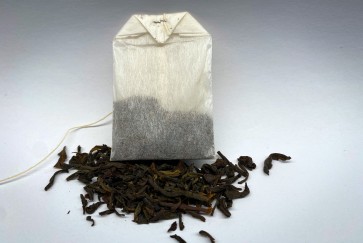During a July gathering to advance the work of the Latin American and Caribbean Network for Water Insecurity Experiences, anthropologist Sera Young witnessed firsthand the human toll of the water crisis in Mexico. It touched nearly every aspect of people’s lives, from their nutrition and physical health to their psychological and financial well-being.
“It is easier to buy Coke than water,” one woman said.
Young, associate professor of anthropology in the Weinberg College of Arts and Sciences and a faculty fellow of Northwestern’s Institute for Policy Research, said people are worried and angry to be suffering from shortages and poor quality. The wait for water tanker trucks interrupts their days, resulting in time lost that could be spent preparing food, caring for children, going to work or even sleeping.
Most recently, Young co-authored the article “Acknowledging, measuring and acting on the importance of water for food and nutrition,” published by Nature Water on Oct. 12. The researchers assert that recognizing the importance of experiences with water insecurity in the context of food and nutrition is essential to achieving the Food and Agricultural Organization’s mission to achieve food security for all.
She also discussed the connection between food and water insecurity with research colleagues from Universidad Iberoamericana and University of Delaware. Hosted by Nature Water Talks on World Food Day 2023, the presentation is available to view online.
At the UN’s 2023 Water Conference in March, Young presented on the Water Insecurity Experiences Scales (WISE Scales), a more accurate tool for collecting data on water insecurity than current water indicators. Young developed these survey instruments in collaboration with an interdisciplinary research network of scholars and practitioners.
Since the group’s first paper was published in 2019, at least 60 countries have begun using the WISE Scales to provide valuable data to leaders and policymakers.
Prior to the development of the WISE Scales, water insecurity measures focused on the visible aspects of water such as the physical presence of a well or water infrastructure within a household.
Young and her team aim to show that people can experience water hardships even when they live in water-rich areas or have a faucet in their house.
“To more accurately understand water insecurity, we need to know if humans have reliably sufficient water for basic domestic needs, including for drinking and hygiene.”
Estimates show an estimated 2 billion people in the world lack access to clean water, and climate change is worsening the crisis.
Northwestern Now spoke with Young about a recent breakthrough in tackling water insecurity in Latin America, how access to clean water fits into the broader issue of a nation’s stability and what inspires her to keep pushing for a holistic view of water availability.
What is the significance of the governor of Nuevo León signing an agreement to gather WISE data on water experiences of people within the state?

This meeting was incredible for a few reasons.
For one, it’s an example of a government being proactive about water issues. They are building the WISE Scales into regular surveys of the most vulnerable people in their state. They will be able to see how water insecurity varies across time, and who is affected, and if the interventions they put into place, are effective.
They are creating a “playbook” that other government entities can follow, both within Mexico and around the world. There is precedent for this with measuring experiences with food insecurity in Brazil, where it is now a law that food security must be measured.
It’s also a testament of the value that these data have to policymakers. This meeting moves the WISE Scales squarely into the policy domain. While other policymakers have spoken about the value of these data, the Nuevo León commitment marks the first time a local government has baked these data into their regular activities.
How does access to water fit into the broader issue of stability for a nation, or in this case, instability, violence and immigration problems? What’s at stake?
Water issues are disrupting at the micro-level and at macro-levels. Within households, there is evidence that interpersonal violence increases with water issues. There is also more social friction — frustration about who retrieves the water, and who gets to use the water in the household.
Water issues can bond neighbors together, but it can also be quite stressful to be asked to lend water or ask to borrow water — we document this in a 20-site study here.
When water problems get severe enough — to impact food production, or just life in general as we are seeing in Uruguay, just as one example, people consider moving and eventually do move.
And water issues also exacerbate existing crises, like the cholera outbreak in Syria that’s happening.
We have also seen water being weaponized, such as Russia destroying water infrastructure in Ukraine, and migrants at the Texas border being denied water to drink.
What keeps you going to continue to push for a more holistic view of water availability?
I can’t think of a more valuable resource than water. It’s a platitude to say that water is life, but it’s a phrase I’ve heard in many languages, around the world, and it’s true. We literally can’t live without it. The importance of a problem can be evaluated by how common it is and how severe the consequences are, and water insecurity is both very common and the consequences can be devastating.
So, when I think about how I want to spend my research energies, I think bringing the human voice to water issues to advocate for improving water insecurity is a good use of my efforts. Without measuring human experiences with water, these issues will remain invisible.
If our efforts can shed light on this hidden suffering, we can be a force to improve water security globally.


